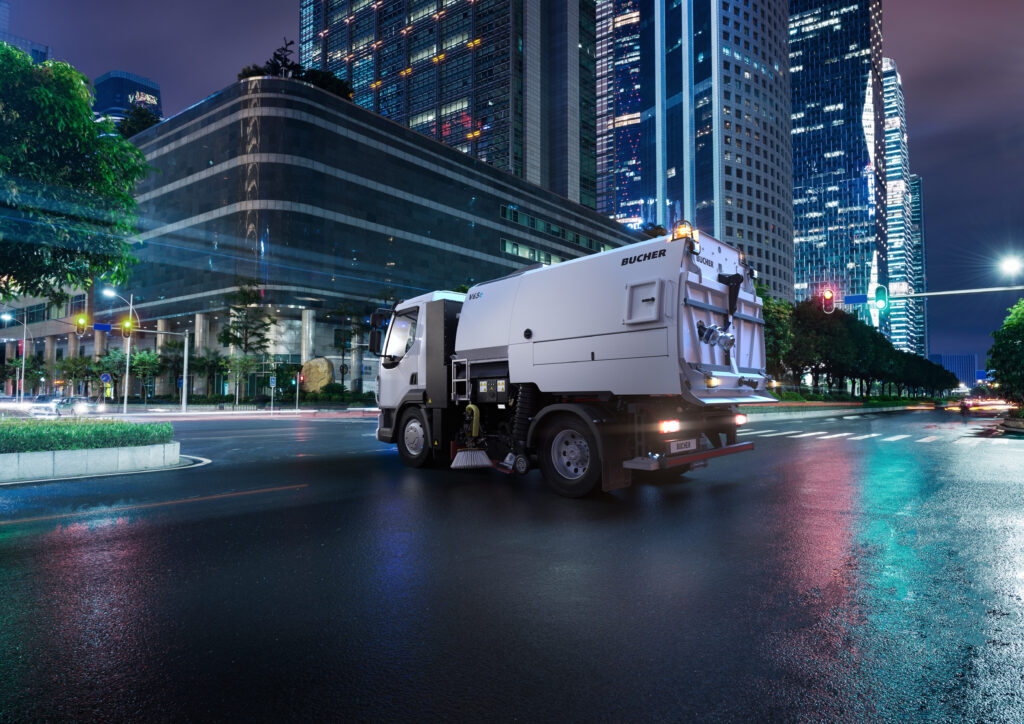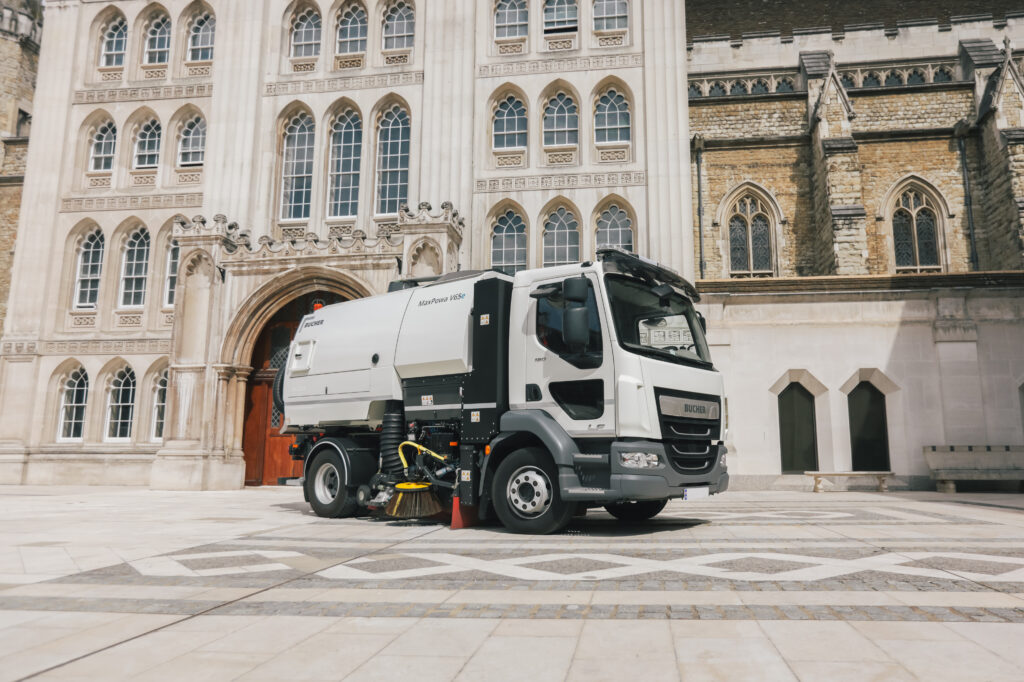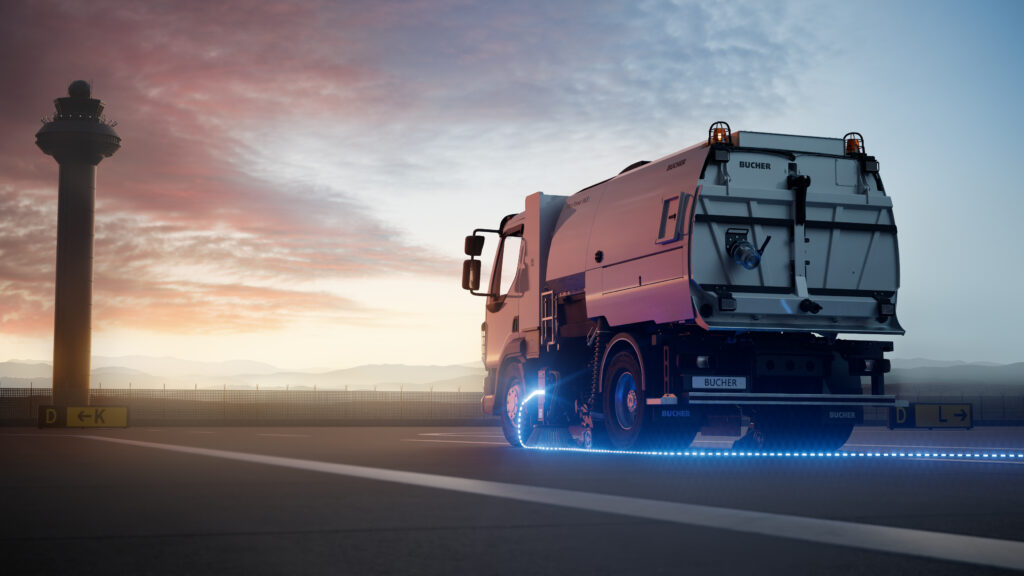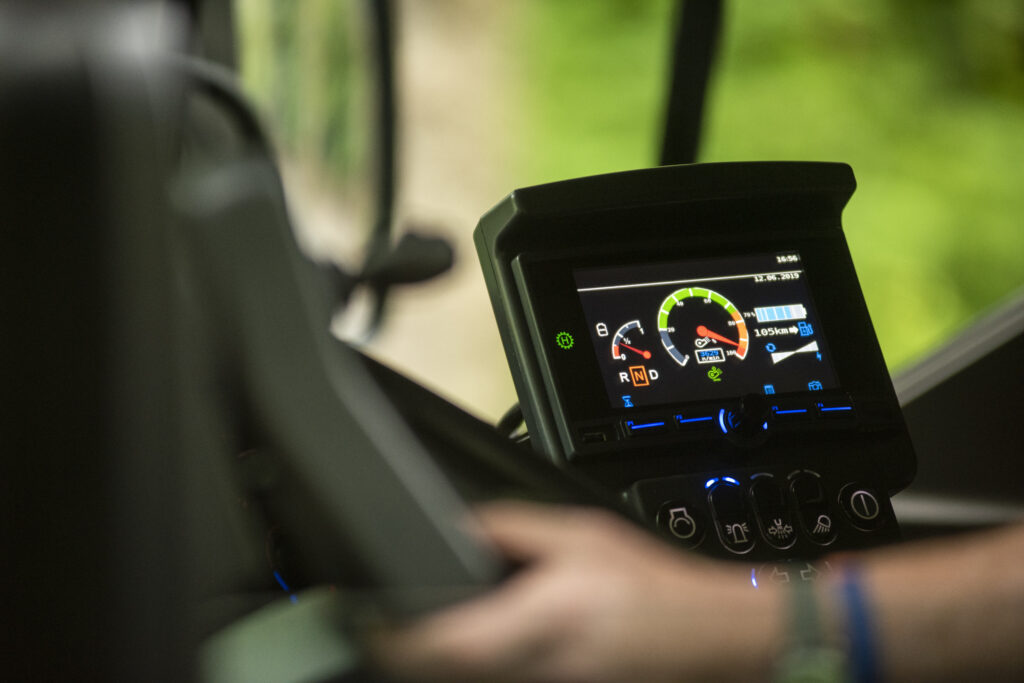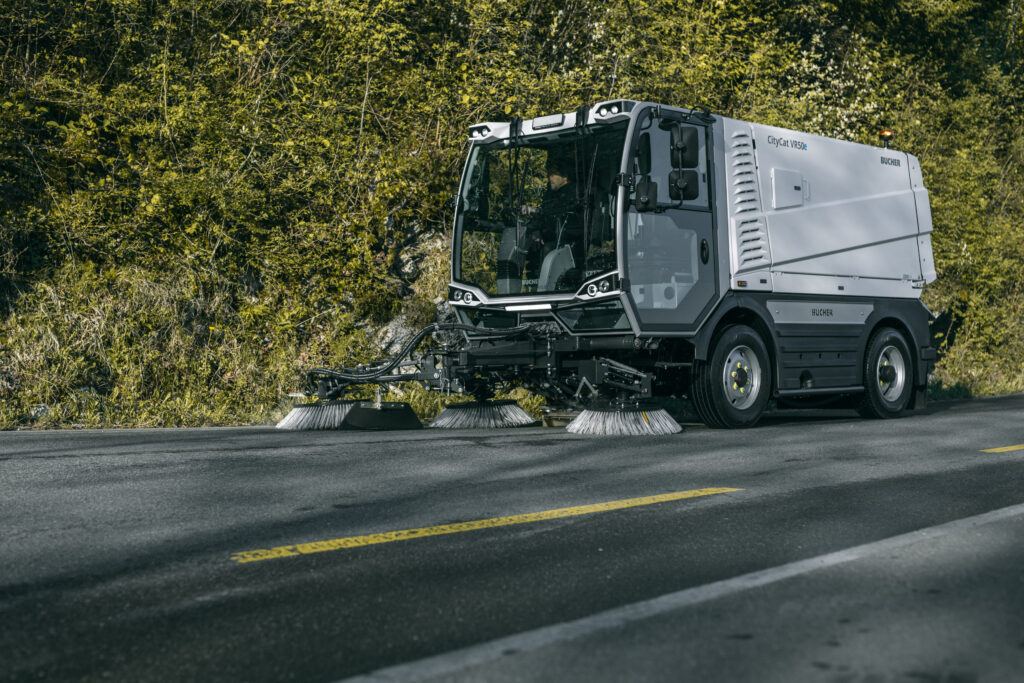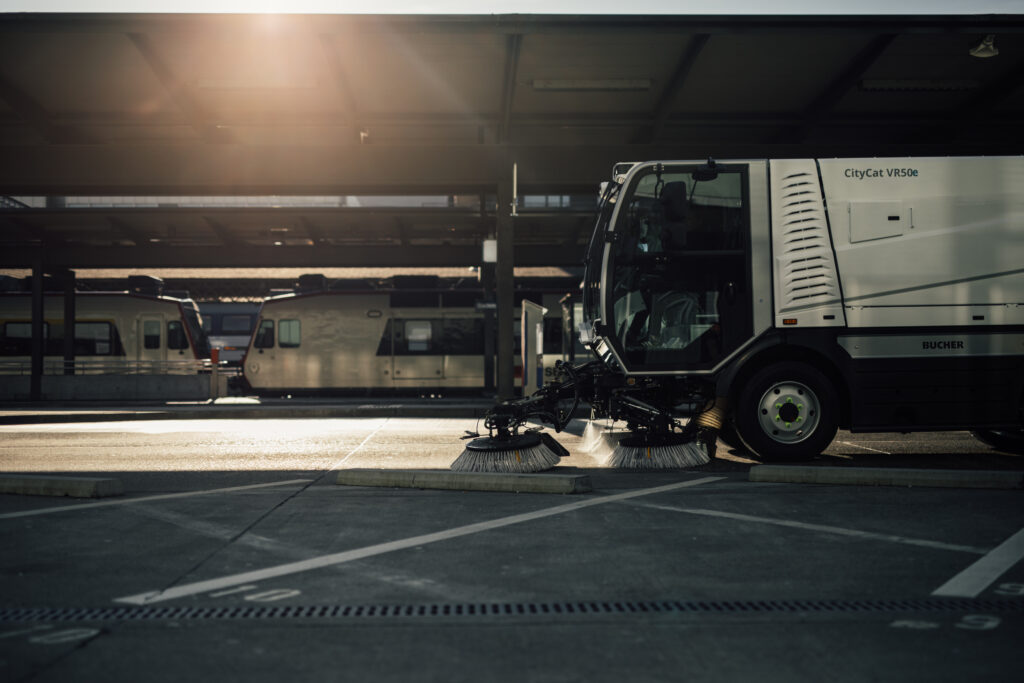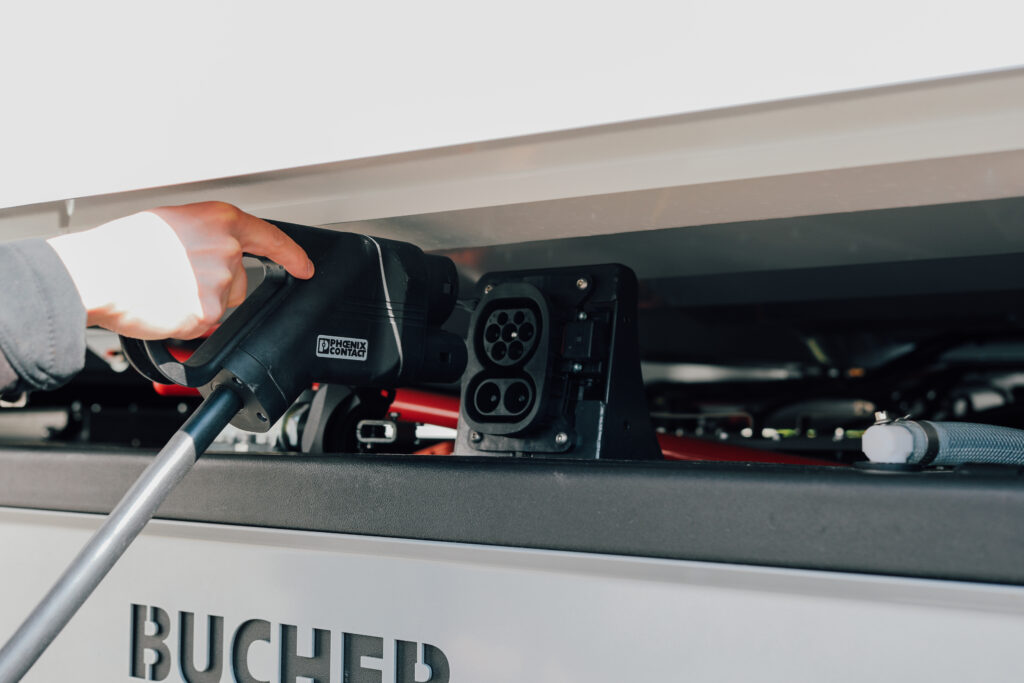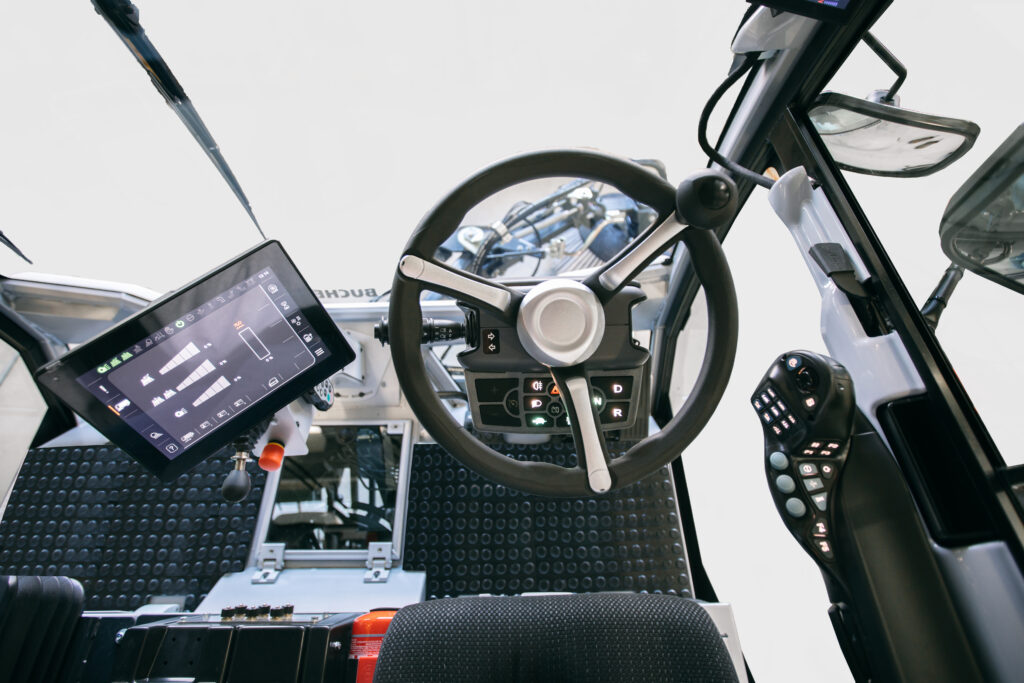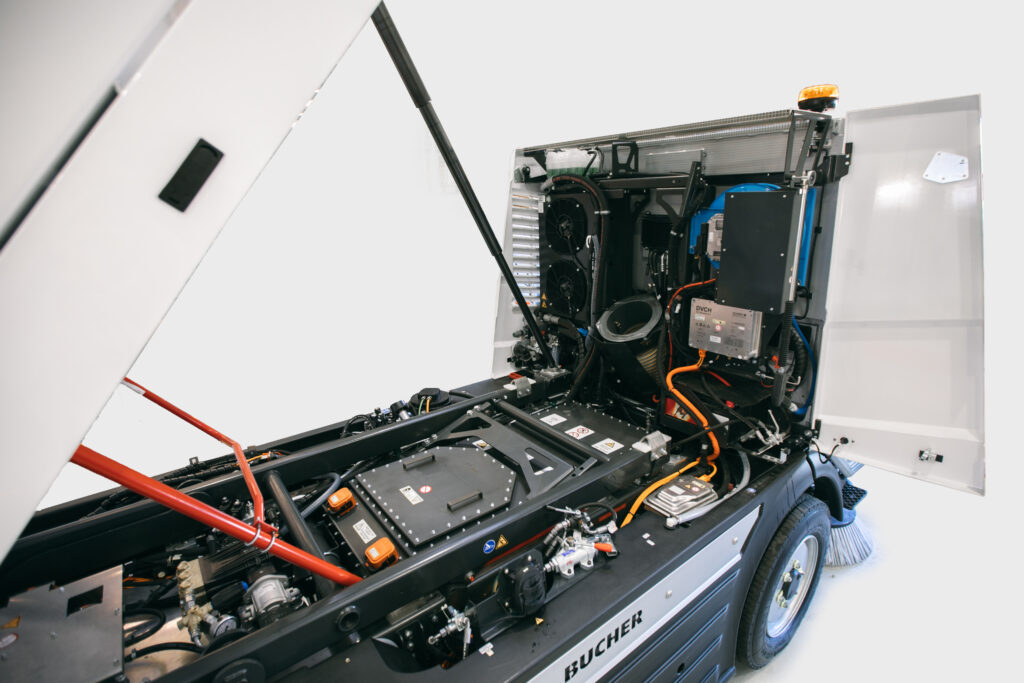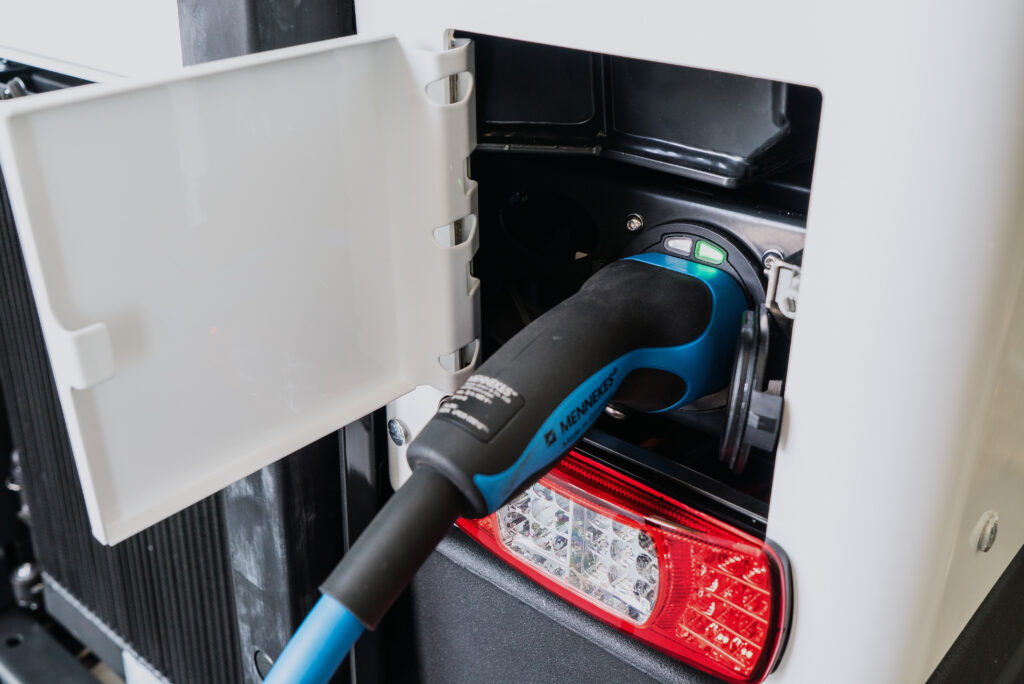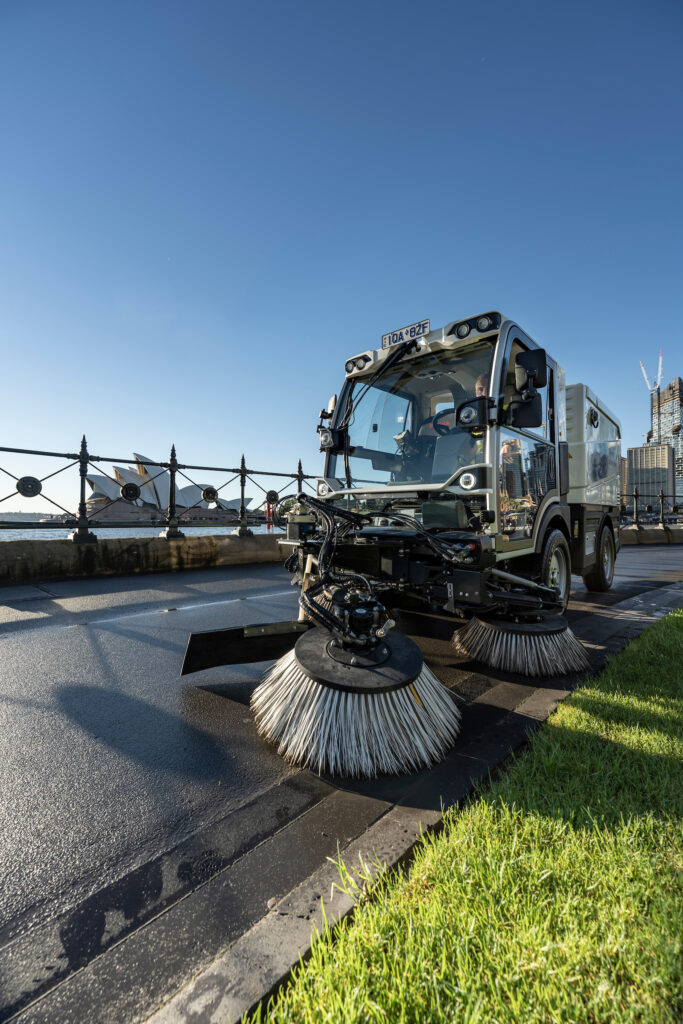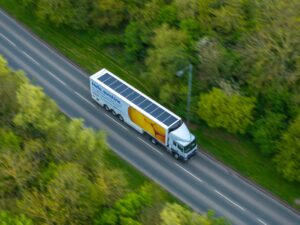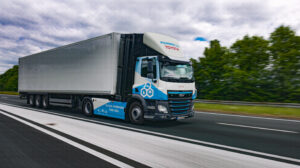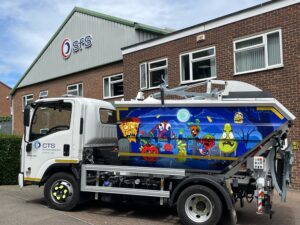Bucher Municipal’s General Manager, Graham Howlett, tells Fleet Vision International that electric street sweepers are critical to the industry’s sustainable revolution.
In the global pursuit of sustainability, every sector must play its part in reducing its environmental impact and embracing eco-friendly alternatives. While much attention has been focused on electrifying passenger vehicles, the commercial and municipal sectors have also been making significant strides towards greener solutions. One such area of innovation is the electrification of street sweepers, with companies like Bucher Municipal leading the charge.
Municipal vehicles and solutions supplier Bucher Municipal has recognised the urgent need to transition towards sustainable transportation. Leveraging its expertise in engineering and manufacturing, the company has unveiled a range of electric vehicles tailored to meet the unique demands of urban environments. From compact street sweepers to robust sewer cleaners or winter salt spreaders, Bucher Municipal’s electric fleet encompasses a diverse array of applications, heralding a new era of clean, efficient mobility.
‘The conventional view of a street sweeper conjures images of noisy, diesel-belching machines trundling along urban streets, machines that emit harmful pollutants such as nitrogen oxides (NOx) and particulate matter (PM), contributing to air pollution and adversely impacting public health,’ says Graham Howlett, Bucher Municipal General Manager. ‘Electric street sweepers are challenging this perception, offering a cleaner, quieter, and more sustainable alternative, representing a significant leap forward in environmental stewardship and urban sustainability.’
Electric street sweepers, like Bucher Municipal’s CityCat V20e, CityCat VR50e, and MaxPowa V65e, produce zero tailpipe emissions, reducing carbon footprints and improving air quality in urban areas. This shift towards cleaner, greener technologies aligns with global efforts to combat climate change and create healthier, more liveable cities.
‘One of the standout features of our electric street sweepers is their versatility and adaptability to diverse urban environments,’ says Graham. ‘The CityCat V20e, with its compact size and manoeuvrability, is ideally suited to navigating pedestrian areas, narrow streets and congested urban thoroughfares, where space is limited.’
Equipped with advanced battery technology, Graham explains that the CityCat V20e delivers reliable performance while minimising environmental impact. ‘This makes it a valuable asset for municipalities striving to enhance cleanliness and sustainability in urban centres.’
Similarly, the CityCat VR50e electric street sweeper offers a versatile solution for mid-sized municipalities and urban districts. ‘With its innovative design and efficient operation, the CityCat VR50e combines the benefits of electric propulsion with the performance and reliability that our customers expect. It is equipped with state-of-the-art features such as 70kW DC charging and energy-efficient systems to really maximise productivity while minimising energy consumption. This also ensures cost-effective and environmentally responsible cleaning operations.’
At the forefront of Bucher Municipal’s electric street sweeper lineup is the MaxPowa V65e, a powerful and efficient machine designed for large-scale cleaning tasks in metropolitan areas and industrial zones. ‘The MaxPowa V65e has a robust construction and high-capacity waste collection system, which means it delivers unparalleled performance and productivity and is capable of tackling even the most demanding cleaning challenges,’ says Graham. ‘By electrifying our flagship street-sweeper model, we are demonstrating a commitment to sustainability and innovation and setting a new standard for urban cleaning equipment in the 21st century.’
In addition to environmental benefits, Graham says that electrified street sweepers offer compelling advantages in terms of operational efficiency and cost savings. ‘Electric propulsion systems, characterised by instant torque and smooth acceleration, provide superior performance and manoeuvrability compared to traditional diesel engines. This translates into increased productivity and reduced cleaning times, enabling municipalities to achieve higher levels of cleanliness while optimising resource utilisation.’
Moreover, the lower operating costs of electric street sweepers contribute to long-term savings for municipalities and fleet operators. With fewer moving parts and reduced maintenance requirements, electric vehicles offer significant advantages in terms of reliability and uptime. The absence of complex internal combustion engines also eliminates the need for costly fuel and exhaust after-treatment systems, further reducing operating expenses and enhancing overall fleet efficiency.
Another key benefit of electrified vehicles is their noise output. ‘When operating in a densely populated urban or residential environment, this allows the municipals to extend their operating hours and ensures quieter operations with less disruption to residents when sweeping out of hours,’ says Graham.
He adds that the electrification of street sweepers aligns with broader trends towards sustainable urban mobility and smart city development. ‘By integrating electric vehicles into municipal fleets, cities can reduce their dependence on fossil fuels, decrease greenhouse gas emissions, and promote the use of renewable energy sources. We also offer advanced telematics and connectivity features through Bucher Connect to enable our customers to perform real-time monitoring and optimisation of their street-sweeping operations. This allows municipalities to achieve greater efficiency and effectiveness in managing their cleaning activities.’
Graham believes that the electrification of street sweepers represents a transformative shift towards cleaner, more sustainable urban environments. ‘Our CityCat V20e, CityCat VR50e, and MaxPowa V65e vehicles exemplify the innovative spirit driving this change, offering municipalities a range of versatile and efficient solutions for urban cleaning.’
With zero emissions, lower operating costs, and superior performance, electrified street sweepers are paving the way towards a greener future, one in which cities can thrive in harmony with nature. As the sector continues to embrace the benefits of electric mobility, let’s not overlook the humble street sweeper, whose silent revolution is helping to build a cleaner, healthier world for generations to come.
